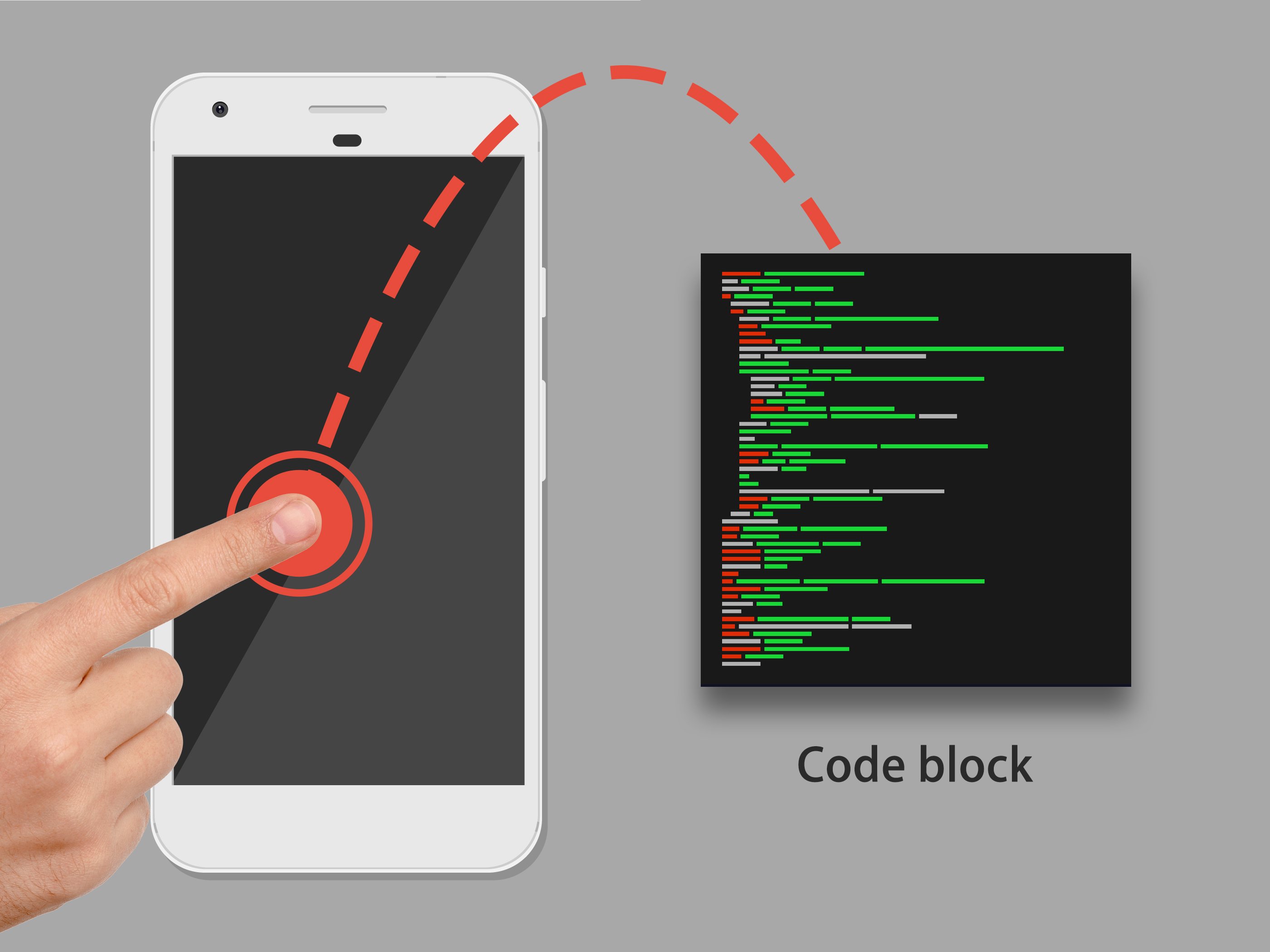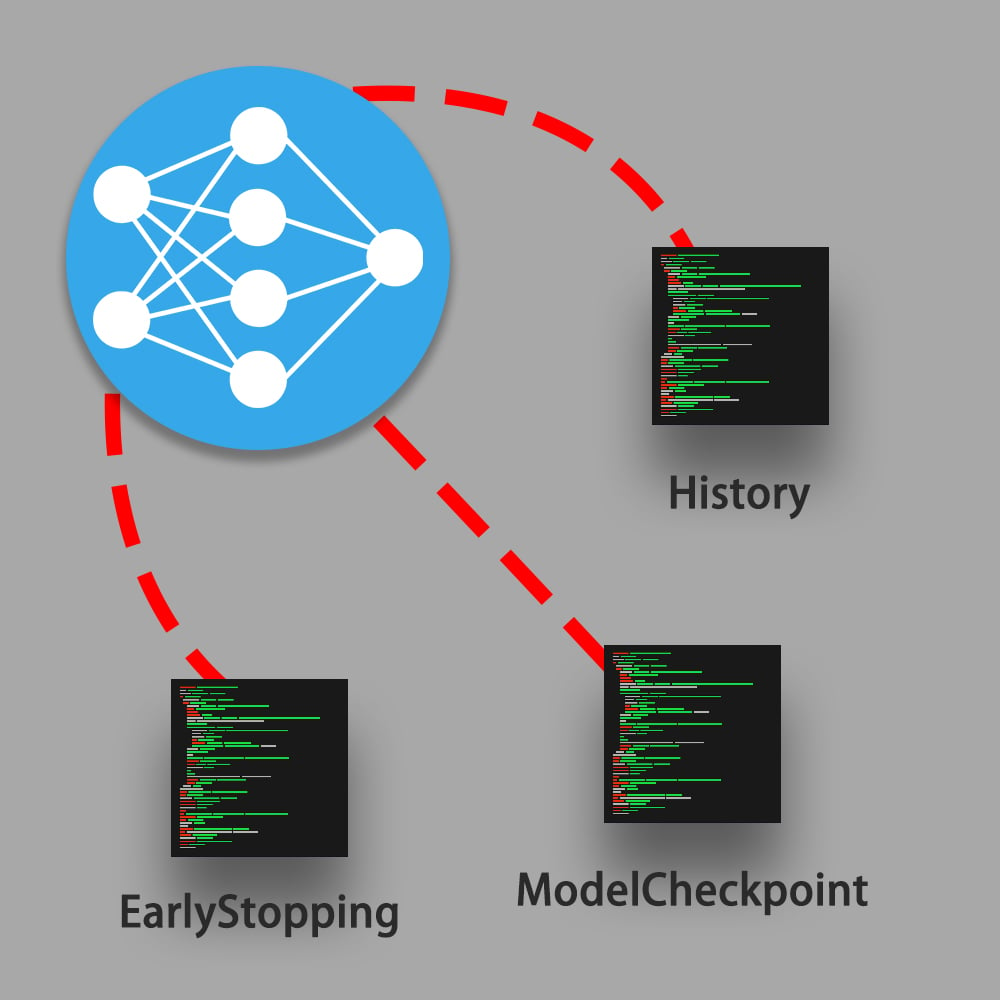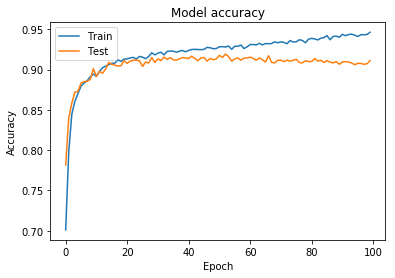Keras callbacks
Introduction to Deep Learning with Keras

Miguel Esteban
Data Scientist & Founder
What is a callback?

Callbacks in Keras

A callback you've been missing
# Training a model and saving its history history = model.fit(X_train, y_train, epochs=100, metrics=['accuracy'])print(history.history['loss'])
[0.6753975939750672, ..., 0.3155936544282096]
print(history.history['accuracy'])
[0.7030952412741525, ..., 0.8604761900220599]
A callback you've been missing
# Training a model and saving its history history = model.fit(X_train, y_train, epochs=100, validation_data=(X_test, y_test), metrics=['accuracy'])print(history.history['val_loss'])
[0.7753975939750672, ..., 0.4155936544282096]
print(history.history['val_accuracy'])
[0.6030952412741525, ..., 0.7604761900220599]
History plots
# Plot train vs test accuracy per epoch plt.figure()# Use the history metrics plt.plot(history.history['accuracy']) plt.plot(history.history['val_accuracy'])# Make it pretty plt.title('Model accuracy') plt.ylabel('Accuracy') plt.xlabel('Epoch') plt.legend(['Train', 'Test']) plt.show()

History plots

Early stopping
# Import early stopping from keras callbacks from tensorflow.keras.callbacks import EarlyStopping# Instantiate an early stopping callback early_stopping = EarlyStopping(monitor='val_loss', patience=5)# Train your model with the callback model.fit(X_train, y_train, epochs=100, validation_data=(X_test, y_test), callbacks = [early_stopping])
Model checkpoint
# Import model checkpoint from keras callbacks from keras.callbacks import ModelCheckpoint# Instantiate a model checkpoint callback model_save = ModelCheckpoint('best_model.hdf5', save_best_only=True)# Train your model with the callback model.fit(X_train, y_train, epochs=100, validation_data=(X_test, y_test), callbacks = [model_save])
Let's practice!
Introduction to Deep Learning with Keras

